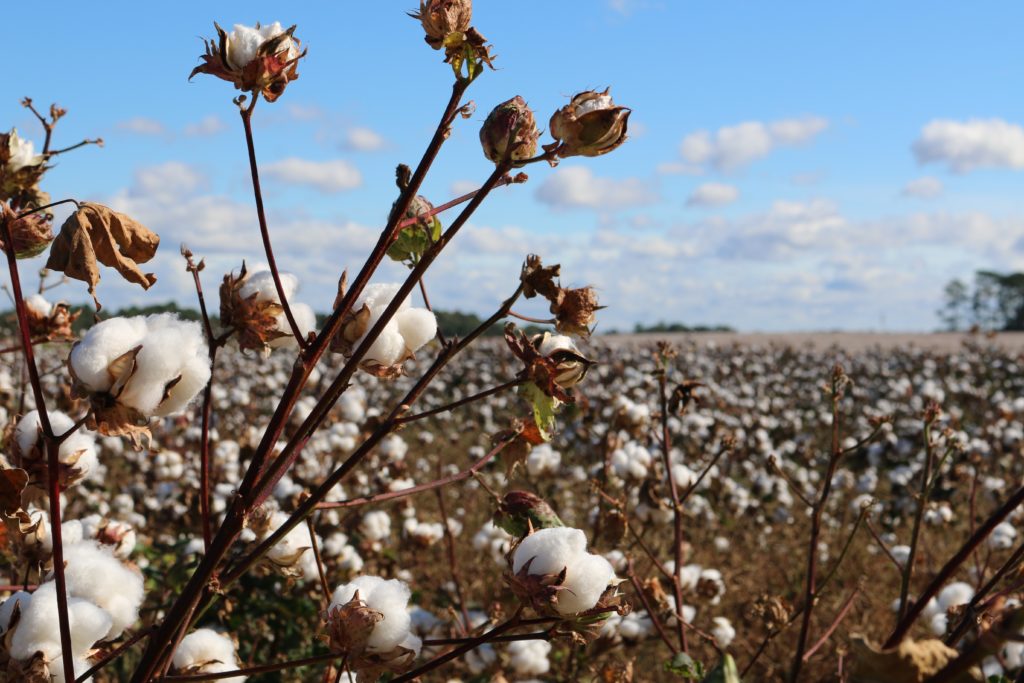
Several years ago, when I first heard of organic cotton I thought it was just a marketing ploy. Organic food I understood, but organic clothing?! Does it really make a difference? After some research here is what I discovered:
Conventional cotton production is responsible for almost a quarter of the world’s insecticide use. In the US alone it takes about 1/3 of a pound of pesticides to grow enough conventional cotton for one t-shirt. Intensive water irrigation and synthetic fertilizers are required and repeated cultivation also causes soil losses. Many conventional cotton seeds are genetically modified (GMO) and treated with fungicides and insecticides. Once the cotton is ready to be harvested herbicides are are used to defoliate the plants to make picking easier. When cotton is loomed and prepped for cutting it is put through several chemical treatments and the dyes used can contain heavy metals. People employed at conventional cotton farms and factories are exposed to the toxic chemicals and pesticide runoff also affects neighboring animals and the water supply.
Organic cotton growers emphasize natural, biological methods including crop rotation, cover crops, organic fertilizers, and beneficial insects. These practices require less irrigation because the soil is much healthier. Organic cotton seeds are not treated with chemicals and are not genetically modified (GMO). The weeds that sprout up in a crop of organic cotton are removed by hand instead of by use of chemicals. Organic cotton is less processed and not treated with harsh chemicals during processing. It is typically more expensive than conventional cotton as its production requires more skill, time and hands-on labor.
The differences in growth and production of conventional vs organic cotton are quite stark; however, unlike organic food, textile products do not have to be certified in order to be described as organic. A product claiming to be organic might only contain a small percentage of organic cotton or may be made of organic cotton but dyed using toxic chemicals that would never be allowed in certified organic products. In order ensure a product is truly organic from field to finished product look for the Global Organic Textile Standard (GOTS) symbol. Products carrying the GOTS symbol are made from organic fibers, have met strict environmental and social criteria during processing and have been certified by an independent, third party along the whole supply chain. Find out more about GOTS here…
So in summary, is organic cotton better? Is it better quality or more long lasting? Some say it is because the fibers have not been broken down by chemicals, but I could not find any substantive proof so that is still debatable. Is organic cotton better for the environment and those that are employed in the cotton industry? The answer to that is very clear. Organic cotton can be a better option for babies and adults with excema or allergy-prone skin.
Follow me on Instagram & Facebook so you do not miss my upcoming reviews on organic cotton products.

Leave a Reply